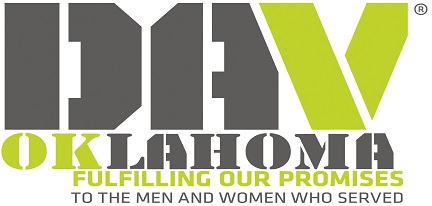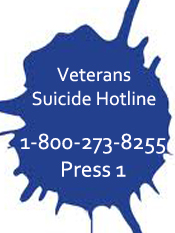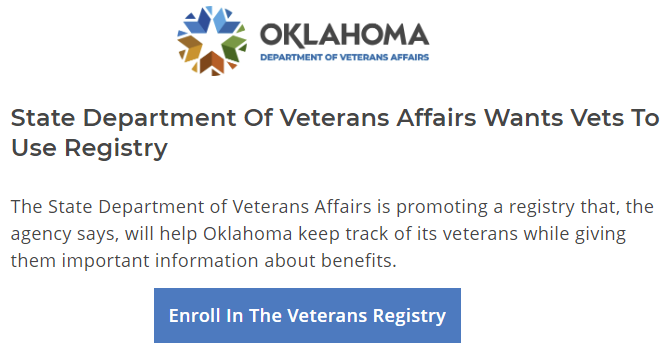Congressional researchers say that eliminating the ability of nearly 600,000 military veterans to collect retirement pay and disability compensation simultaneously could save billions and contribute to deficit reduction. The Congressional Budget Office, a federal agency that provides lawmakers with budgetary and economic information, says doing so could save the government $139 billion between 2018 and 2026. The CBO’s report was published online 8 DEC as part of a series of options for reducing the federal deficit from 2017 and 2026. The practice is called “concurrent receipt.” By law, veterans are eligible to collect both sets of pay if they meet specific criteria. Vets who sustained career-ending combat injuries are eligible for combat-related special compensation, while those veterans who received a disability rating of 50 percent or more after at least 20 years of service are eligible for what is termed concurrent retirement and disability pay.
It remains to be seen how the next Congress and the incoming administration will respond to CBO’s recommendation. President-elect Donald Trump has promised to bring the U.S. debt to zero in eight years, although he also touts a massive — and potentially costly — military expansion
Concurrent receipt status – CBO proposes elimination:
Combat-Injured Veterans Tax Fairness Act
On December 16, 2016, H.R. 5015, the Combat-Injured Veterans Tax Fairness Act of 2016 became Public Law No: 114-292. This new law provides veterans medically separated, or retired from the military due to combat-related injuries another opportunity to recoup the taxed portion of their severance payments.
The law requires the Department of Defense (DOD) to identify veterans medically separated from military service due to combat-related injuries that were issued severance payments after January 17, 1991, and withheld amounts for tax purposes.
DOD will provide this group of veterans with a notice of the amount of improperly withheld severance payments, and instructions for filing amended federal tax returns to recover the withheld amount. The period for filing this IRS claim for a credit, or refund is extended to one year after DOD provides the veteran with the information required by this Act.
This law will be a significant benefit to this group of injured and ill veterans, and partially fulfills DAV Resolution 011 that calls for allowing all veterans to recover taxes withheld from their disability severance pay.
NSO Office Muskogee Switching to appointments, Feb 1st
As of February 1, 2017 the Muskogee DAV National Service Office will be seeing clients on an Appointment Basis.
Please contact us at 918-781-7764 or email us at dav.vbamus@va.gov to make an appointment.
Appointments will be scheduled from 8:00 am to 3:00 pm every day except Wednesday. Appointments on Wednesday will be from 8:00 am to 11:00 am.
• VA National Cemeteries Now Offering Pre-need Eligibility Determinations:
The VA now provides eligibility determinations for interment in a VA national cemetery prior to the time of need. Through the Pre-need Determination of Eligibility Program, upon request, individuals can learn if they are eligible for burial or memorialization in a VA national cemetery. Interested individuals may submit VA Form 40-10007
• Passage of Fairness for Veterans Act; Calls for Investigation into “Bad-paper” Discharges:
The Fairness for Veterans Act has the support of a bipartisan coalition, including many veterans elected to Congress. An important provision of the Fairness for Veterans Act was included as part of the National Defense Authorization Act of 2017. Once signed by the President, this provision of the NDAA would codify into law the 2014 “Hagel Memo,” issued by former Secretary of Defense Chuck Hagel. The Hagel Memo calls for the Boards for Corrections of Military Records to apply “liberal consideration” in favor of Vietnam veterans, contending that PTSD was a contributing factor in circumstances surrounding other-than-honorable discharges. While the Hagel Memo was interpreted narrowly by the military’s review board agencies, it did impact a handful of Vietnam veterans with PTSD. The Fairness for Veterans Act clarifies and strengthens the spirit of the Hagel Memo by applying it more broadly to Post-9/11 veterans with less-than-honorable discharges.
• The Toxic Exposure Research Act of 2015 Passes Senate; Awaits President’s Signature:
H..R. 6416 now heads to the President’s desk to be signed into law. The bill contains legislation consistent with several of DAV’s national resolutions. Highlights of the measure include provisions to:
Benefits
Establish automatic entitlement to survivor benefit payments in certain cases;
Streamline the Board of Veterans Appeals video hearing process;
Enhance the Veterans Benefit Administration’s contract medical examination process;
Temporarily increase the number of judges presiding at Court of Appeals for Veterans Claims;
Require continuous review of the Transition Goals Plans and Success (GPS) program, its workshops, training methodology, delivery of services, collection and analysis of course critiques and VSO involvement;
Establish a three-year transition period for Service Disabled Veteran Owned Businesses following the non-service-connected death of the service-disabled veteran owner, rated less than 100 percent;
Express a sense of Congress that October 5 be recognized annually as American Veteran Disabled for Life Day;
Health Care
Authorize advanced appropriations for VA’s Medical Community Care account;
Improve access to standard immunizations for veterans;
Provide priority services to Medal of Honor recipients within VA’s health care system;
Establish procedures for mental health treatment for veterans who performed classified missions while on active duty;
Provide examination and treatment by VA for emergency medical conditions and women in labor;
Authorize several major VHA medical facility projects;
Authorize research for descendant health conditions potentially related to veterans exposed to toxic substances during their service in the Armed Forces;
Homeless
Expand the definition of “homeless veteran” to authorize access to VA services and benefits to this group of veterans;
Increase per diem payment rates for transitional housing assistance that later become permanent housing for homeless veterans;
Establish a program to improve retention of housing by formerly homeless veterans and veterans at risk of becoming homeless;
Establish a National Center on Homelessness among Veterans andRequire VA to assess comprehensive service programs for homeless veterans.
• TRICARE & other health insurance (OHI):
TRICARE beneficiaries with other health insurance (OHI) must disclose their OHI coverage information. It’s important to make sure your OHI is reflected accurately in the Defense Enrollment Eligibility Reporting System (DEERS). For all beneficiaries other than active duty service members, TRICARE is the last payer to all health care benefits and insurance plans, except for Medicaid, TRICARE supplements, the Indian Health Service and other programs and plans as identified by the Defense Health Agency. Overseas, OHI includes traveler’s insurance, study abroad insurance for students and overseas national health insurance programs. OHI applies to health care services received from civilian providers and at military hospitals and clinics.
• Obama to sign Fairness for Veterans Act:
PTSD Legislation proposed by U.S. Sen. Gary Peters is on its way to President Barack Obama’s desk to be signed into law. The Fairness for Veterans Act helps veterans who may have been given an administrative discharge from the military, rather than an honorable discharge, due to behavior resulting from mental traumas — like post-traumatic stress disorder.
An administrative discharge is often given for minor misconduct, including being late to formation and missing appointments, behavior often seen in those experiencing PTSD.
VA National Cemetery Pre-Need Eligibility Determination Program
ELIGIBILITY DETERMINATIONS FOR BURIAL – IN ADVANCE OF NEED
Summary
Many individuals would like to know, in advance, whether they are eligible for burial in a Department of Veterans Affairs (VA) national cemetery. To assist them, VA is launching an initiative, the “Pre-Need Eligibility Determination Program,” specifically aimed at helping individuals with burial planning and making sure their wishes are known.
VA will upon request make pre-need determinations of eligibility for burial in a VA national cemetery in advance of need. Having this information will help Veterans use the VA benefits they have earned, for their families and for themselves.
Once VA determines that individuals are eligible, those individuals will be entitled to the same benefits they would receive were a determination made at the time of need (time of death). These include any or all of the following, at no cost to the family:
- Burial in any open VA national cemetery, including opening and closing of the grave
- Grave liner
- Perpetual care of the gravesite
- Government-furnished upright headstone, flat marker or niche cover
- Burial flag
- Presidential Memorial Certificate
Eligibility
The law provides eligibility for burial in a national cemetery to:
- Members of the armed forces
- Veterans who have met minimum active duty service requirements as applicable by law and who were discharged under conditions other than dishonorable
Members of the reserve components of the armed forces are also eligible, provided they:
- Died while on active duty under certain circumstances, or while performing training duty;
- Have 20 years of service creditable for retired pay; or
- Were called to active duty and served the full term of service.
The Veterans’ spouse, minor children and under certain conditions dependent unmarried adult children are eligible for burial even if they predecease the eligible Veteran.
Applying for Benefits
VA encourages Veterans and their spouses to apply for a pre-need burial eligibility determination. Authorized representatives can also apply on behalf of eligible claimants.
To apply, submit:
- VA Form 40-10007, Application for Pre-Need Determination of Eligibility for Burial in a VA National Cemetery ; and
- Proof of military service, such as a DD Form 214, if available. If unable to locate proof of military service, apply anyway as VA will attempt to obtain military records necessary to make a determination.
Information should be submitted to the VA National Cemetery Scheduling Office by any of the following methods:
- Fax: 1-855-840-8299 (this is a toll-free number)
- Email: Eligibility.PreNeed@va.gov
- Postal mail: NCSO, P.O. Box 510543, St. Louis MO 63151
Individuals do not need to request a pre-need burial determination to be eligible at the time of need. There is no obligation for those found eligible to be buried in a VA national cemetery.
What to Expect After Applying
VA will review pre-need burial applications and provide written notice of a determination of eligibility (a decision letter). VA will save the information electronically for future reference and to expedite processing burial claims at the time of need.
Note: Applicants should save a copy of all documents submitted and the decision letter received. It is also a good idea to communicate with one’s loved ones or estate planners where the documents are, and about the preference to be buried in a VA national cemetery.
At The Time of Need
At the eligible individual’s time of need (death), the family or personal representative responsible for making the final arrangements, should contact VA’s National Cemetery Scheduling Office to request burial benefits. VA will confirm the pre-need eligibility determination and schedule the burial.
Because laws and personal circumstances change, VA will validate the pre-need decision using the laws in effect at the time VA receives the burial request. We will also check for any bars to receipt of the burial benefit.
Please note that applicants may indicate a preference for a VA national cemetery on the application form, but a pre-need determination of eligibility does not guarantee burial in a specific VA national cemetery or a specific gravesite. VA assigns gravesites in cemeteries with available space once death has occurred and the burial is scheduled.
For More Information
Additional information about the VA Pre-Need Determination of Eligibility Program is available on the VA website at http://www.cem.va.gov/preneed.
VA Agent Orange benefits update:
A new study has found a close relationship between Agent Orange exposure during the Vietnam War and high blood pressure, a conclusion that could lead the U.S. Department of Veterans Affairs to dramatically expand the number of veterans eligible for compensation. The study, published last in early NOV by VA researchers in the Journal of Occupational and Environmental Medicine, found a higher rate of hypertension among members of the Army Chemical Corps who handled Agent Orange during the war compared to those who didn’t. Corps members who
served in Vietnam but did not spray the chemicals also had a higher rate of hypertension than their peers who served outside Vietnam. Both results were statistically significant and add to a body of evidence linking Agent Orange exposure and hypertension.




